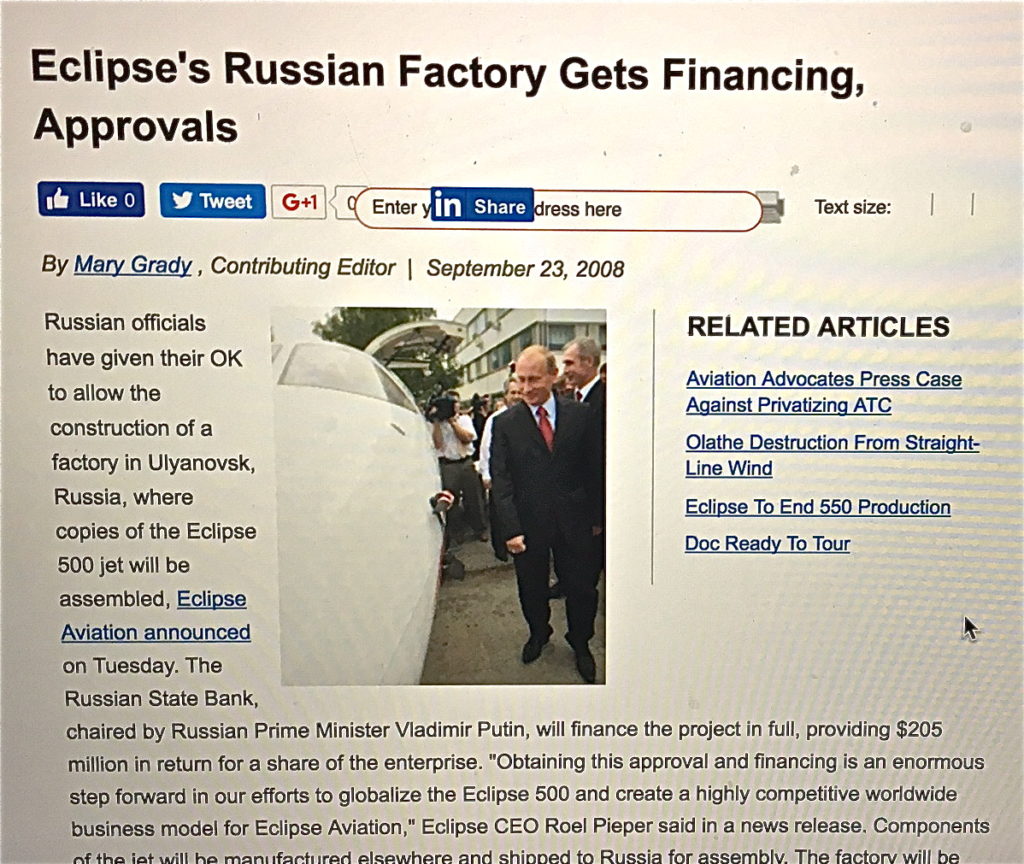
In early March, President Trump’s former national security adviser and campaign trail confidant Michael Flynn registered as a “foreign agent” with the Department of Justice. The reason Flynn filed this particular paperwork stemmed from his namesake firm having been paid approximately $450,000 of a $530,000 contract to work for Inovo BV, a Dutch consulting firm, during a three-month period in 2016 spanning from September to November.
Inovo has strong ties to the Republic of Turkey. It is part of a group of companies overseen by Turkish businessman Ekim Alptekin who acknowledges that he, along with his company, put up the funds that found their way to Flynn.
To date, news reports have focused on Alptekin’s close relationship to Turkish President Recep Tayyip Erdogan and have suggested the money was paid to influence the Trump administration’s positions on Turkey’s political interests. Alptekin claims the money was paid to Flynn to evaluate geopolitical concerns of one of his clients having to do with a gas pipeline from Israel to Turkey.

The news media has also speculated that Alptekin and his Turkish political connections are primarily interested in using Flynn as a channel to convince the Trump administration to extradite Fethullah Gulen, a U.S.-based Turkish cleric who Erdogan claims was at the center of the failed coup to overthrow his government in July 2016. Gulen currently resides in rural Pennsylvania and has denied any involvement in the coup.
In recent days, it has even been reported that early Trump supporter and former CIA director James Woolsey Jr. claims to have attended a meeting allegedly arranged by Alptekin in which Flynn and Turkish officials openly discussed kidnapping Gulen and spiriting him out of the U.S.
All this is to say there is certainly circumstantial evidence to suggest that Gulen was indeed a focal point of Alptekin’s relationship to Flynn. But the controversial cleric was not the only Turkish political issue likely being influenced by the payments and perhaps, in the big picture, not even the most important one.
This Boulder Weekly investigation has found a web of previously unreported connections between Alptekin, Russia and others with interesting ties to the Trump administration and even Trump himself — including Russian oligarchs, United Arab Emirates (UAE) real estate developers, Russian banking scandals and even Vladimir Putin having made appearances in Alptekin’s past business dealings. And based on Alptekin’s interviews conducted with publications in Turkey, it seems that he has had contact with more members of the Trump inner circle than just Michael Flynn.
On Nov. 13, 2016, just five days after the U.S. presidential elections, Alptekin told the Hurriyet Daily News — a newspaper owned by Turkish billionaire Aydın Dogan, the developer of the Trump Towers Istanbul — in regards to Trump, “We have spoken with his advisers and security team to understand what their vision is for the Middle East and Syria.”
“Advisers and security team” certainly sounds like he had contacts with more Trump insiders than just Michael Flynn.
And consider this revelation from the same interview. When pressed by the reporter as to why he had so much confidence in Trump being the best choice for U.S. president when it comes to Turkey’s interests, Alptekin said, “First of all, we have more than a feeling for what vision they have for this region. We know who these people are; we know what their backgrounds are. We have a good idea who will be considered for some critical positions and who [we] will deal with.”
More than a feeling indeed. Five days after the U.S. election and Alptekin claims to already know people within Trump’s inner circle as well as who the newly elected U.S. president is going to name to several critical positions. That’s far more than the American people knew about Trump’s future plans at that time.
But Alptekin’s inside information doesn’t end there. He seems to already know Trump’s intentions for Syria.
He told Hurriyet, “…It has been a consistent U.S. policy objective to have a Syria without al-Assad. But there are realities on the ground. When you look at the U.S., Russia, Turkey triangle with the current and upcoming leadership, I see a more fruitful and more productive prospect than Clinton, with Putin and Erdogan sitting together. … By the way, the Russian-U.S. partnership and the Russian-Turkish partnership will be at best transactional. … Problems in the neighborhood create a necessity to cooperate together. The new administration has indicated through various statements and articles that it values this strategic relationship and will discuss a shared vision for the region. I think that with this strategic relationship and enjoying a transactional productive relationship with Russia will bring better results on the ground in Syria.”
It could be argued that from this and other interviews in Turkish media, Alptekin’s primary interest in influencing the Trump administration may have been to facilitate a temporary unified front in Syria consisting of Russia, the U.S. and Turkey — with an emphasis on excluding the Kurds who are currently fighting ISIS with the support of the U.S.
This motive is particularly important in light of recent changes in U.S. foreign policy toward Syria wherein Alptekin’s prediction for a closer U.S./Russia/Turkey alliance seems to be unfolding even as this article is being written.
As of April 4, U.S. Secretary of State Rex Tillerson is in Ankara, Turkey, meeting with officials of that country including President Erdogan and Prime Minister Binali Yildirim. The purpose of the meeting is to discuss how best to attack the ISIS stronghold of Raqqa, ISIS’ proclaimed capital, without including Kurdish forces, at least that’s the stated Turkish reason for the meeting.
Yildirim has previously made statements in the press that the U.S. risks permanently damaging its relationship with Turkey should it continue to support the Kurdish forces. Alptekin’s statements in Turkish media have been similar. He told Hurriyet, “angering 80 million Turks over a tactical interest in a small geographical area in Syria with 20,000 members of the PYD [Democratic Union Party] does not make sense to me. We know it is an [outlawed Kurdistan Workers’ Party] PKK affiliate, and they know it too.”
Turkey has long considered the PKK and PYD to be Kurdish terrorist organizations. The U.S. has always considered them allies in their military efforts in Iraq and Syria.
Historical tensions in the region explain Turkey’s and Alptekin’s view of the Kurds, but why does Alptekin seem so cozy with Russia and so sure that Trump and Russia will form a productive alliance?
While we can’t know the answer to that question for certain, we can look at Alptekin’s prior interactions with powerful Russian interests for clues.
EA Group
Alptekin runs an umbrella company called EA Group. Within that organization are several companies specializing in specific industries.
He is executive vice president and chairman of the board of Eclipse Aerospace Inc. Also under the EA Group umbrella he owns real estate and defense companies in Turkey, including EA Construction and ATH Defense and Security Solutions A.S. His bio also claims he is a major investor in several other leading companies.
So Alptekin is apparently an arms dealer. According to industry literature, ATH Defense and Security Solutions provides “a large spectrum of products including Aerospace and Avionics Systems, Electric and Electronic systems, Ships and Vessels, Explosives, Ammunitions, Land Systems, Naval Systems, Missiles and Ground to Air Defense Systems, Homeland Security Systems, Simulation and Training Systems, Digital Video-Audio Transmission Systems, Night Vision, Surveillance and Counter Surveillance, etc.”
ATH works in several regions around the world and provides security and firepower for companies as well as countries. It is unclear which countries provide ATH with its weaponry but in the world of arms dealers it’s usually whichever country can get them what they need to fill an order — the U.S., Russia, Germany, etc.
As for real estate, Alptekin’s companies have built several very high-end projects in Turkey to date including at least two high-rise buildings and a condo project wherein individual units sell for over a million dollars. They are a serious player in the global real estate market.
But for the purposes of this investigation, it is Alptekin’s ownership of Eclipse Aerospace Inc. that is most revealing.
Connecting the dots within the ownership of Eclipse is a wild ride to be sure. The company was founded in 1998 by former Microsoft employee Vern Raburn who solicited a major investment from his old boss Bill Gates who became one of the company’s major shareholders.
Eclipse was launched with the expectation that it would revolutionize the light private jet industry. The idea was to produce 1,000 small, two-engine jets a year at a price of $800,000 each, a tiny fraction of what other private jets cost at the time.
The company’s vision drew interest from all over the world, particularly with Gates’ name attached to the project. More than 2,600 planes were ordered.
By 2003 a new investor had appeared. European Technology and Investment Research Company (ETIRC) was interested in running an air taxi service and selling Eclipse jets in Turkey, Russia and Ukraine, as well as other Commonwealth of Independent States (CIS) countries.
ETIRC was an investment company founded by technology pioneer Roel Pieper of the Netherlands and Russian businessman and oligarch Evgeny Bolotin who goes by Daniel Bolotin in most of his business dealings with the West. By 2006, ETIRC was referring to Alptekin as its Turkish business partner in Eclipse.
In May 2007, ETIRC signed another deal with a Turkish twist. This time it formed a joint venture with Atasay, one of the most successful luxury goods and real estate companies in Turkey. Atasay placed an order for 120 Eclipse model 500 jets with an option for 60 more. The new venture was to control all sales and services while also offering a jet taxi service throughout the region.
Atasay CEO Cihan Kamer is also a well-connected businessman with significant political influence. In a press release announcing the new venture with Eclipse, Atasay also noted that it had entered a $1 billion partnership in Turkey with Emaar Properties and planned to spend another $5 billion with Emaar over the next five years. Emaar Properties is the largest developer in the world and is located in Dubai, UAE.
Emaar is the company behind the famed Burj Khalifa, the world’s tallest building at more than 160 floors. It’s the building made famous in the Mission Impossible movie wherein Tom Cruise spent some time scaling its exterior. But more importantly, in 2007 the building was still under construction and Emaar founder and chairman Mohomed Alabbar was still considering branding opportunities for his new creation. In a recent interview with What’s on Dubai, Alabbar says that while the building was being constructed, he met with Donald Trump who at that time was attempting to convince him that he should pay Trump an annual fee to use his name on the new tower.
This is the business world wherein Alptekin has been operating for years.
Over time, Eclipse aviation failed to deliver its light jets in the number and at the low cost it had promised. Many of those who had put up significant down payments sought to get their money back. Original investors like Bill Gates were long gone. The company had spent nearly $2 billion and was heading for bankruptcy. That’s when things got really strange.
Supposedly, as a way to save the company, ETIRC decided to sink another $100 to $150 million dollars into Eclipse, making ETIRC the company’s largest shareholder. In fact, ETIRC, along with another company called Martilio Holdings Limited, reportedly owned nearly 70 percent of Eclipse at that time.
Pieper took over as CEO in 2008 with a bold-sounding plan.
By the end of that year, Eclipse had filed for Chapter 11 bankruptcy with an interesting strategy for reorganizing the business. Eclipse was going to build a new manufacturing plant in Ulyanovsk, Russia by way of a new $205 million loan from Russian state bank VEB. Several media accounts from the Netherlands, Turkey and Russia at the time indicated that a full $100 million of the investment was being personally guaranteed by Russian President Vladimir Putin. A September 2008 article in AVweb, an aviation magazine, showed a photo of Putin inspecting an Eclipse jet in front of TV cameras. Court documents concerning the Eclipse bankruptcy filed in Delaware also indicate that Eclipse was interacting with Putin who had personally approved the deal.

So the known major players in Eclipse by 2008 were Pieper, Bolotin, Putin, Martilio, Atasay (a partner of Emaar) and Alptekin. But that would soon be changing.
The global banking crisis hit in full force in late 2008 and ETIRC’s reorganization plan fell apart. VEB never produced the funds and Eclipse was forced into Chapter 7 bankruptcy. Back to that in a moment.
Another casualty of the banking crisis was Russia’s Svyaz-Bank. The collapse of Svyaz-Bank was one of the largest financial disasters to hit the Russian banking system. According to bank investigators, the bank failed because it had been using a scheme for playing the securities markets. The bank bought securities then took out loans on them, repossessed them and used its money to buy more securities. The technique was repeated until the bank became extremely overexposed to the markets and had to develop yet another scheme for hiding its overexposure from the central bank’s regulators.
It’s hard to say exactly what the improprieties of Svyaz-Bank were based on the translated descriptions from Russian banking documents, but it suffices to say they were serious.
A investigation into Svyaz-Bank found that it had created nine “technical companies” which were secretly owned by Svyaz-Bank and used to invest in ventures and buy securities with fully uncollateralized loans. One of the banks’ nine technical companies was Martilio Holdings Limited, the investor in Eclipse which owned nearly 15 percent of the company.
Martilio is a Cyprus-based company, which can be seen having ties to numerous other Cyprus-based business entities via the Panama Papers, which were released by WikiLeaks in early 2016. The Panama Papers have been used by journalists to expose a vast network of offshore banking that is being used to shelter profits and/or launder ill-gotten gains from around the world. Cyprus has become perhaps best known as the banking system preferred by wealthy Russians for hiding their money and getting it out of Russia.
But the collapse of Svyaz-Bank exposed more than just Martilio. It also sparked an investigation into the $150 million loan given to ETIRC founding oligarch Daniel Bolotin. That loan also appears to have been made without any collateral backing. And it was not the only unsecured loan to find its way to ETIRC from Svyaz-Bank. Bank regulators found that several uncollateralized loans appear to have been made to ETIRC projects launched by Pieper and Bolotin, including nearly $40 million for a publishing venture and a GPS system manufacturing company, both of which failed.
These unsecured loans are apparently still under investigation, although no one has ever been charged with a crime. One bank official described what happened at Eclipse as a great “technology scheme” where tens if not hundreds of millions of dollars were loaned just as the company went into bankruptcy. All the money vanished and no one seems to know where it went.
Those who follow the money-laundering world have noted that such bankruptcies can be an effective way to hide or clean money. That’s not to say that is what happened in this case.
So what ultimately happened to Eclipse?
In August 2009, one lone bidder offered to purchase Eclipse Aviation out of Chapter 7 bankruptcy. The lone bid was for $40 million and came from Eclipse Aerospace, Ekim Alptekin’s newly created company. Nearly a billion dollars in debt was wiped out by the bankruptcy and even Alptekin has admitted he was thrilled to be able to buy what he saw as billions in research and development, licensing and other assets for a song.
In 2010, Sikorsky Aircraft invested in Eclipse. In 2015, Eclipse merged with Kestrel Aircraft to form a new company called One Aviation. There is quite a history and an intriguing collection of business partners in the long, troubled path of Eclipse.
Ekim Alptekin has been called a mystery man. But it seems that he is only a mystery to most of us here in the U.S. who have only recently been introduced to his business dealings and influence through the belated filing of paperwork by disgraced former National Security Advisor Michael Flynn.
Does Alptekin represent a smoking gun in the unfolding Trump/Russia scandal? He is one of the few people with confirmed contacts and financial payments into the Trump inner circle, but how important he turns out to be to the overall story is still unclear. Alptekin represents a strange intersection between Turkey, Russia and the Trump administration.
And if his statements in the Turkish press from November of last year are to be believed, then he may have played a critical role in determining what happens next in Syria, and that makes him an important player on the world stage. That’s why we must leave no stone unturned in determining all of the parties Alptekin has been speaking for, exactly what policies he has been advocating and who, besides Flynn, within the Trump orbit he has been in contact with. The lives of hundreds of thousands of refugees, along with all those still trapped in war-torn Syria, may well be hanging in the balance.














